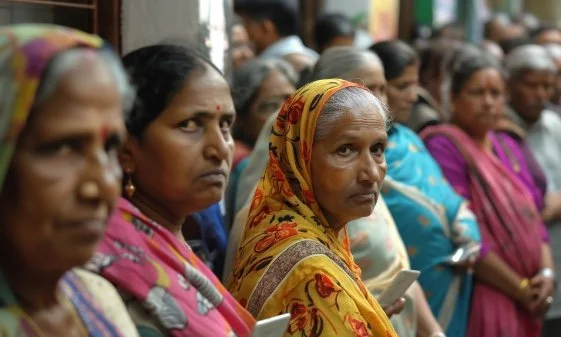Tamil Nadu Party Challenges SIR in Supreme Court, Citing Risk to Electoral Rights
Petition Says ECI’s Voter Roll Revision Could Cause Disenfranchisement
November 4, 2025
The Dravida Munnetra Kazhagam (DMK) party in Tamil Nadu has filed a writ petition in the Supreme Court challenging the Election Commission of India’s (ECI) expansion of a voter list verification drive known as the Special Intensive Revision (SIR). The petition claims that the SIR exercise, now extended to 12 states and Union Territories, threatens the right of citizens to participate in elections and imposes burdens that resemble a citizenship test without legal authority.
The DMK’s challenge comes after the ECI completed a similar drive in Bihar, where many voters reportedly faced confusion and the risk of deletion from electoral rolls. The new round includes states such as Tamil Nadu, Kerala and West Bengal, which are due to hold elections in the coming year.
The DMK argues that the ECI’s SIR orders issued on October 27 are arbitrary and lack proper safeguards, potentially violating several constitutional rights, as reported by ThePrint.
The petition, filed by senior DMK leader R.S. Bharathi, says the SIR creates a de facto system of citizenship verification. It points out that the orders allow electoral registration officers to flag “suspected foreign nationals” and refer their names to authorities under the Citizenship Act. The DMK argues that the determination of citizenship lies with the Union government, not with local electoral officers, and that such actions are not authorised by the Representation of the People Act, 1950.
In Tamil Nadu, a regular summary revision of electoral rolls had already taken place between October 2024 and January 2025. This, the petition argues, addressed routine updates such as removal of deceased or migrated voters. The DMK says the sudden expansion of SIR is unnecessary and lacks transparency about why it was introduced in these 12 states now. The party further warns that the rigid documentation required under SIR disproportionately affects marginalised communities, who often lack stable access to identification or residential proof.
The petition claims the SIR violates multiple provisions of the Indian Constitution. It refers to Article 14 (right to equality), Article 19 (freedom of expression, which includes political participation), Article 21 (right to life with dignity), Article 325 (non-discrimination in electoral rolls) and Article 326 (universal adult suffrage). It also argues that SIR contravenes procedures under the 1950 Act and the Registration of Electors Rules, 1960.
The Election Commission is mandated to conduct free and fair elections, and its independence has constitutional protection. However, it must also function within the legal framework defined by Parliament. The DMK’s core argument is that the Commission has overstepped this boundary by creating a framework that imposes extra-legal burdens on citizens and creates conditions for disenfranchisement.
Several objections have been raised about how the SIR was carried out in Bihar. A significant number of voters found their names missing from the rolls without prior notice or opportunity to respond. Field officers reportedly carried out deletions based on flawed assumptions, including visual profiling and hearsay about nationality or migration. In many instances, no notice was issued to those marked for deletion.
Some political leaders in Bihar alleged that the revision exercise targeted specific communities, especially linguistic and religious minorities. The absence of transparency in the process of identifying so-called “doubtful voters” created suspicion that the SIR was not simply administrative but carried social and political motives. Civil society groups working in affected districts documented cases where long-time residents with established proof of address and voter history were suddenly marked as suspected foreigners. These cases were often handed over to local authorities under the Citizenship Act without even a basic inquiry by electoral officials.
At the centre of the dispute is procedural fairness in electoral participation. While periodic revision of electoral rolls is essential to maintaining accuracy, it must be done with care to avoid arbitrary deletion. If the verification demands in the SIR process resemble those of the National Register of Citizens (NRC), the effect may be to convert routine voter list management into a mechanism of exclusion. The petition reflects concern that such a shift lacks legislative sanction and may have been introduced without adequate public explanation.
Historical experience shows that citizenship-related documentation processes in India, such as the NRC in Assam, have often led to large-scale exclusion due to bureaucratic hurdles. Many citizens, particularly from economically disadvantaged groups, were asked to produce documents they never possessed. If similar procedures are imposed through the electoral machinery, voters may lose their right to vote not because they are ineligible, but because they cannot meet administrative demands.
You have just read a News Briefing by Newsreel Asia, written to cut through the noise and present a single story for the day that matters to you. Certain briefings, based on media reports, seek to keep readers informed about events across India, others offer a perspective rooted in humanitarian concerns and some provide our own exclusive reporting. We encourage you to read the News Briefing each day. Our objective is to help you become not just an informed citizen, but an engaged and responsible one.

